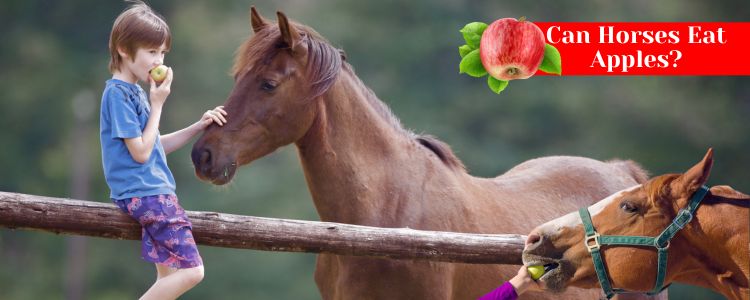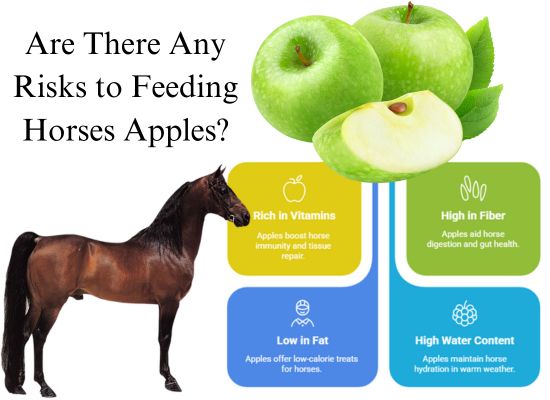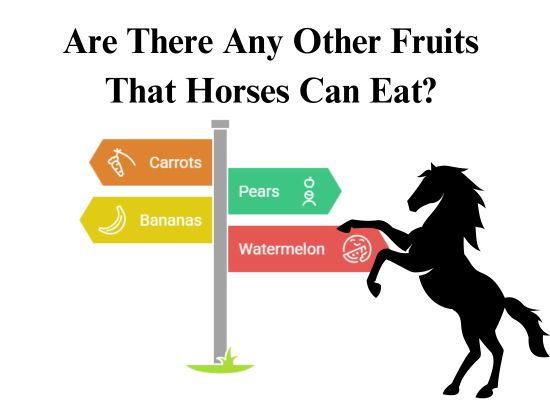Yes, horses can eat apples, and many enjoy them as a tasty treat! If you’re a horse owner or just a fan of horses, you might have wondered: can horses eat apples? Is it safe for horses to eat apples? Can they eat them daily, or is it harmful? Let’s dive into the facts and clear up any confusion surrounding this popular fruit.
Can Horses Eat Apples? The Basics
Yes, horses can eat apples. They are generally safe for horses, and many horses enjoy them. However, as with any food, there are some important guidelines to follow when feeding apples to horses. Understanding the benefits and risks will help ensure that you’re providing a healthy and safe snack for your horse.
Why Are Apples Good for Horses?
Apples are not just tasty snacks for horses—they’re also packed with essential nutrients that can benefit your horse’s health when given in moderation. Below are several key reasons why apples are good for horses:
1. Rich in Vitamins
Apples are a great source of essential vitamins, particularly vitamin C. Horses, like humans, need vitamin C for a variety of important functions. Vitamin C helps support the immune system, which can be especially helpful in preventing illnesses and maintaining overall health. It also plays a vital role in tissue repair and wound healing. This vitamin helps the body produce collagen, a protein important for the structure of skin, tendons, and ligaments. Additionally, vitamin C supports general cellular function, which is crucial for maintaining healthy body systems.
Though horses can produce vitamin C on their own, supplementing their diet with fruits like apples can offer a boost to their overall well-being.
2. High in Fiber
Fiber is an essential component of a horse’s diet, and apples are a good source. Fiber plays a crucial role in maintaining a healthy digestive system. For horses, fiber aids in promoting proper gut motility, which helps prevent constipation and supports healthy bowel movements. Fiber-rich foods can also reduce the chances of more serious digestive issues, such as colic, which is a painful and potentially life-threatening condition that affects a horse’s digestive tract.
Since apples contain both soluble and insoluble fiber, they help in managing the digestion of sugars and prevent drastic spikes in blood sugar levels. This makes apples a great option for a natural snack that supports long-term digestive health.
3. Low in Fat
Apples are naturally low in fat, which makes them an ideal treat for horses that need to maintain a healthy weight or are prone to obesity. Horses that consume too many fatty treats can easily gain excess weight, which can lead to health problems like laminitis, insulin resistance, or metabolic disorders. Given that apples are low in fat, they offer a sweet, healthy alternative without adding too many extra calories to your horse’s diet.
This makes apples a suitable option for regular snacking, especially if your horse is on a controlled diet to maintain a balanced weight.
4. Water Content
Apples contain a significant amount of water—approximately 85% of an apple’s weight is water. This high water content is particularly beneficial during the warmer months or when horses are more active. Hydration is vital for horses, as they can easily become dehydrated, which may lead to issues like reduced performance, poor digestion, and lethargy.
Offering apples as a treat can help keep your horse hydrated, especially if they’re not drinking enough water on their own. This is especially helpful when you’re traveling or if your horse spends time in a dry, hot environment where they may need extra hydration support.
Are There Any Risks to Feeding Horses Apples?
While apples are generally safe for horses, there are some precautions to consider. Overfeeding apples or giving them improperly can lead to several risks.
1. Apple Seeds Contain Cyanide
One of the main concerns about feeding apples to horses is the seeds. Apple seeds contain a compound called amygdalin, which can release cyanide when metabolized. Cyanide is toxic, but the quantity in a few seeds is unlikely to harm your horse. Still, it’s best to avoid giving your horse apple seeds.
To avoid this risk, always remove the seeds before giving apples to your horse. Cutting the apple into slices can also make it easier to check and ensure there are no seeds.
2. Excessive Sugar
Apples are naturally sweet and contain sugars. If your horse eats too many apples, the excess sugar can lead to problems such as weight gain or insulin resistance. Too much sugar can also cause metabolic issues in horses that are prone to conditions like laminitis.
3. Choking Hazard
Large pieces of apple could potentially cause a choking hazard for horses. It’s important to cut the apple into small, manageable pieces before feeding it to your horse.
4. Allergic Reactions
Although rare, some horses may be allergic to apples. Signs of an allergic reaction include swelling, itching, or gastrointestinal distress. If you notice any of these symptoms after feeding your horse an apple, stop giving them apples immediately and consult a vet.
How to Safely Feed Apples to Horses
To ensure that feeding apples to your horse is safe, follow these simple guidelines:
Wash the Apple
Always wash apples before giving them to your horse. This removes any pesticides, chemicals, or dirt that may be on the skin of the fruit.
Remove the Core and Seeds
As mentioned earlier, apple seeds contain cyanide. To avoid this, remove the core and seeds before offering the apple to your horse. You can also cut the apple into small slices to make sure the seeds are completely removed.
Feed in Moderation
Apples should be fed in moderation. A few slices here and there as a treat are perfectly fine, but don’t overfeed your horse. It’s best to stick to one or two apples a day depending on the size of your horse.
Avoid Feeding Rotten Apples
Do not feed your horse any rotten or overripe apples. Rotten apples may contain harmful bacteria that could cause digestive issues for your horse.
How Many Apples Can a Horse Eat?
The amount of apples your horse can safely eat depends on the size of the horse and its dietary needs. A general guideline is to feed your horse no more than 1-2 apples per day. Large horses might be able to handle more, while smaller horses may need less.
If you’re unsure how many apples are suitable for your horse, it’s always a good idea to consult your vet. They can offer personalized advice based on your horse’s health, age, and weight.
Are There Any Other Fruits That Horses Can Eat?
If your horse enjoys apples, you might wonder what other fruits are safe to feed them. Here are a few other fruits that are safe for horses to eat:
- Carrots: Horses love carrots, and they’re low in sugar and high in vitamin A.
- Pears: Similar to apples, pears are safe for horses in moderation.
- Bananas: Bananas are a great source of potassium for horses.
- Watermelon: Watermelon is safe and hydrating for horses, especially during the summer months.
Just like apples, these fruits should be given in moderation and with care. Avoid feeding horses citrus fruits or grapes, as these can cause digestive issues.
Common FAQs About Feeding Apples to Horses
Can horses eat apple cores?: No, horses should not eat apple cores. The cores contain seeds, which can be harmful due to cyanide. Always remove the core before feeding an apple to your horse.
How often can I give my horse an apple?: You can give your horse apples as an occasional treat, but limit them to one or two apples per day, depending on your horse’s size.
Can apples cause colic in horses?: In small amounts, apples are not likely to cause colic. However, if you overfeed apples or feed them with the seeds, the excess sugar and potential toxins can cause digestive problems. Always feed apples in moderation.
Are there any fruits that horses should avoid?: Yes, horses should avoid grapes, raisins, and citrus fruits. These can cause digestive upset or even be toxic to horses.
Can horses eat apple pie?: Apple pie contains added sugar and spices that are not suitable for horses. Stick to fresh apples instead of processed foods like pie.
Bottom Line: Can Horses Eat Apples Safely?
Apples are a tasty, nutrient-rich treat that can be a great addition to your horse’s diet when fed in moderation. However, it’s important to remove the seeds and avoid overfeeding them. Like with any treat, balance is key. Keep apples as a rare snack, and always consult your vet if you’re unsure about your horse’s diet.



